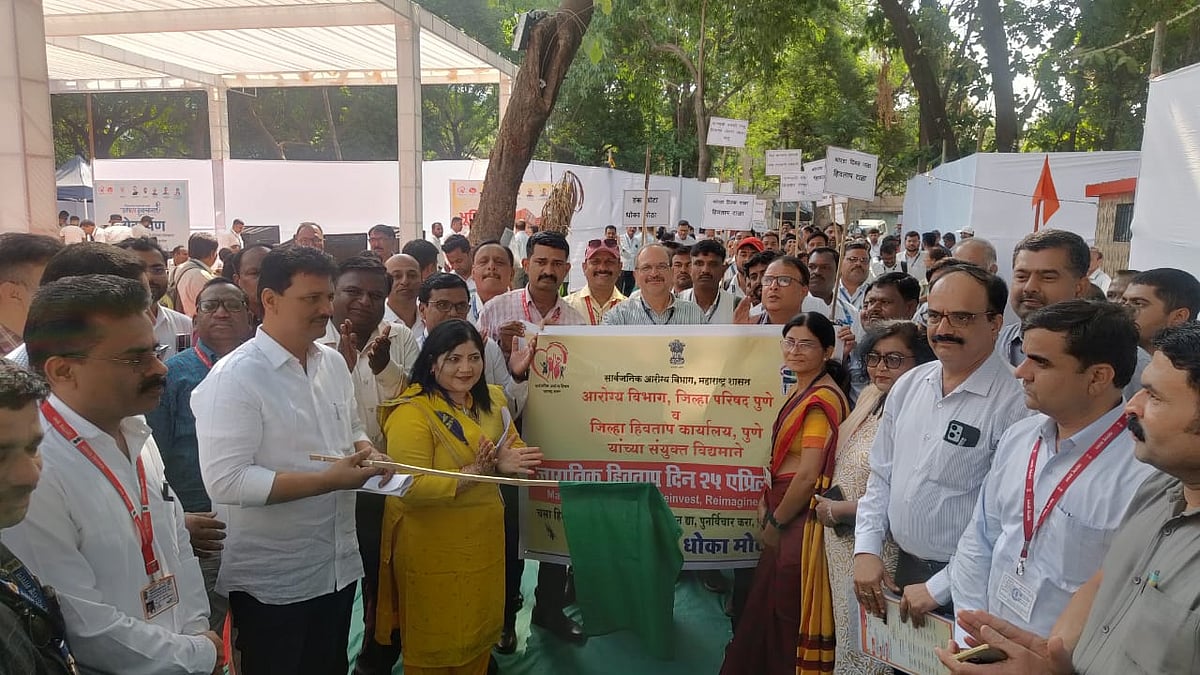On the occasion of World Malaria Day, the District Malaria Office, Pune under the National Pest Control Programme, organised an awareness rally in the Tadiwala Road and Pune Station area to create awareness and to educate the people about malaria prevention and control.
The rally was inaugurated by Prakash Abitkar, Minister of Public Health, Maharashtra State, who flagged off the event and emphasised the importance of community involvement in the fight against malaria.
The rally was organised early on Friday morning near slums in the Pune Railway Station area to create awareness about malaria and preventive measures to curb the spread. The local citizens actively participated in the rally.
Speaking to The Free Press Journal, District Malaria Officer, Aparna Patil said, “We have successfully conducted the rally in the slum area because it is the most affected by malaria due to unhygienic conditions. This drive is not a one-day affair. We will be conducting an anti-malaria drive for a month starting from May. Under the drive, we will go to schools and community gathering areas to create awareness about the disease and to educate them about maintaining hygiene and cleanliness in their surroundings. This year, the global theme was ‘Malaria Ends With Us: Reinvest, Reimagine, Reignite’, and we are dedicated to fully curbing the disease and making a change. We aim to make Pune free from malaria by 2027.”
According to the data shared by the Pune district Malaria Officer, over the years, vector-borne diseases like malaria, dengue, chikungunya, zika, Japanese Encephalitis (JE), and kala azar have shown varying trends. In 2021, a total of 4,95,079 blood samples were tested for malaria, out of which 16 were positive. Dengue showed 987 samples tested with 531 positive, and 582 chikungunya samples with the number of positive cases reaching 428 in 2021. Malaria testing increased in 2022 by 6,49,140 with 15 positives. Dengue cases rose with 1,555 tested and 648 positives, while chikungunya showed 169 positives out of 230 samples.
The year 2023 saw a further increase: 6,72,665 malaria samples tested with 9 positive cases, dengue testing remained similar with 1,545 samples and 220 positives, and chikungunya remained low at 166 tested and 121 positive.
In 2024, the numbers rose sharply: 7,58,842 malaria samples tested, 19 positive; dengue had 3,319 samples tested with 310 positives; and chikungunya had a spike with 269 positive out of 2,773 samples collected.
In early 2025, the figures dropped, with 1,94,612 malaria samples tested and only 3 positives, while dengue 895 tested, with 71 positive cases and chikungunya 795 tested and 60 positive cases. Meanwhile, Zika showed 691 samples tested in 2024 with 10 positives. No cases of Japanese Encephalitis or Kala Azar were reported in 2024 or 2025.
